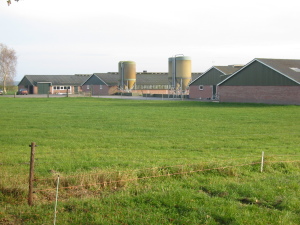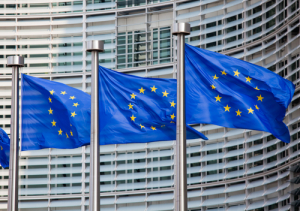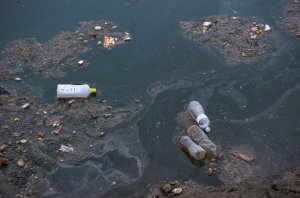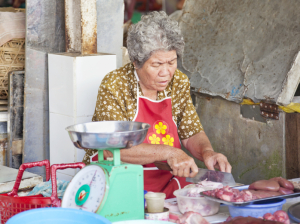Worldlog Semena 48 – 2014
Notícias horríveis esta semana. Em total foram gaseadas quase 200.000 galinhas em duas empresas avicultoras por causa do surto da gripe das aves. O gigantismo do sistema actual opera como se fosse uma bomba-relógio que inevitavelmente vai causar uma explosão de doenças animais. Em 2003 foram gaseadas 40 milhões de galinhas por causa da gripe das aves. Podemos constatar que o amontoamento de quaisquer seres vivos num espaço limitado acaba em surtos de doenças. É uma verdadeira loucura que no conjunto de somente três pequenos municípios holandeses (Barneveld, Veenendaal e Ede) estão alojadas dez milhões de galinhas. Isto representa uma contínua ameaça de surtos de doenças virulentas contagiosas. E apesar da séria preocupação das pessoas na vizinhança, a construção de mega-estábulos como fábricas virulentas continua implacavelmente.
Recentes pesquisas mostram que aves migratórias, que geralmente são designadas como culpadas pela gripe das aves, justamente contraem o vírus na Holanda ao invés de trazê-lo para cá.
Tudo bem ponderado, bastante matéria para um debate na Câmara Baixa. Infelizmente meu pedido para tal debate foi rejeitado. Apesar disso, por meio de perguntas parlamentares eu pedi esclarecimentos sobre a garantia do bem-estar dos animais durante a proibição de transporte, a segurança dos vizinhos e o uso desafável de CO2 para matar as galinhas. Gasear com CO2 muitas vezes causa uma morte lenta e dolorosa para as galinhas.
Esta semana eu apresentei duas moções acerca do tratado de livre comércio entre a UE e os Estados Unidos (TTIP). As moções pedem ao nosso governo para insistir junto à UE para terminar as negociações relativas a este tratado. E em vez disso negociar com os Estados Unidos uma alternativa sustentável. No meio tempo 230 organizações sociais e civis provenientes de 21 países membro começaram uma iniciativa civil que já obteve mais de 913.000 assinaturas. https://stop-ttip.org/ No mês passado a Comissão Europeia deixou saber aos iniciadores que ela negará a iniciativa civil. Uma vergonha. Eu insisti junto ao governo holandês para falar a favor da iniciativa em Bruxelas. O tratado de livre comércio tem consequências muito prejudiciais para o meio-ambiente, o bem-estar de animais, os países em desenvolvimento e os empreendedores europeus. Portanto, esperemos que possamos impedir este tipo de estratagemas!
Bela notícia! O prémio para o meio-ambiente das Nações Unidas foi atribuído a Boyan Slat, um rapaz holandês de 20 anos vindo de Delft que inventou uma instalação para arrumar a sopa de plásticos. Por meio de uma campanha de crowdfunding já se conseguiu juntar bastante dinheiro para testar protótipos cada vez maiores da instalação. Boyan é o ganhador mais jovem desse prémio até agora. Parabéns!
No debate sobre o Orçamento para o Comércio Exterior e a Cooperação ao Desenvolvimento eu indiquei a relação entre os problemas de desenvolvimento e a mudança do clima. Por causa da mudança do clima causada pelo Ocidente o abastecimento mundial de alimentos é ameaçado e nisso os países em desenvolvimento são os mais severamente atingidos. Ademais, a elevação do nível do mar vai resultar em centenas de milhares de refugiados do clima num futuro previsível. Além disso eu esclareci que a ajuda da Holanda aos países em desenvolvimento deve sobretudo implicar uma mudança de nosso modo de produção e de consumo. Devemos empenhar-nos a fundo por um comércio honesto, transparência quanto à origem das matéria primas e regionalização!
Ainda um filmezinho do eminente economista Rifkin. Ele pleiteia o fim do alto consumo de carne e assegura que a crise do crédito não é nada em comparação com os problemas ainda a virem. https://www.youtube.com/watch?v=m9wM-p8wTq4
Até a semana que vem!
Terrible news this week. Almost 200,000 chickens in total at two poultry holdings were gassed due to an outbreak of bird flu. The current large-scale system is like a ticking time-bomb for unstoppable outbreaks of animal diseases. In 2003, 40 million chickens were gassed due to the bird flu. Diseases are bound to arise when living beings are kept so close together in one area. It is absolutely ridiculous that three small Dutch municipalities ( Barneveld, Veenendaal and Ede) together accommodate ten million chickens. It is causing a continuous threat of a contagious virus outbreak. And despite the fact that people living in the neighbourhood are seriously worried, more mega stables or virus factories are being built.
Recent research showed that migratory birds, which often serve as scapegoats for bird flu, are actually exposed to the virus in the Netherlands instead of bringing it here.
All in all, food enough for a debate in the House of Representatives. My request for one was unfortunately rejected. In my parliamentary questions I asked for clarification on the guarantee of the welfare of animals during the transport ban, the safety of people living in the neighbourhood and the application of highly animal unfriendly CO2 to kill chickens. Gasification with CO2 often means a slow painful death for the chickens.
This week, I submitted two motions regarding the Free Trade Agreement between the EU and the United States (TTIP). The motions request our government to call on the EU to end the negotiations on this agreement and to discuss a more sustainable alternative with the US. Meanwhile, more than 230 community organisations and citizens’ movements from 21 Member States have started a citizens’ initiative and have already collected more than 913,000 signatures. https://stop-ttip.org/ Last month, the European Commission informed the initiators that it will not acknowledge the citizens’ initiative. Shame on the EU. I called on the Dutch government to argue in favour for the initiative in Brussels. The Free Trade Agreement has very harmful effects on the environment, animal welfare, developing countries and European entrepreneurs. Hopefully we can stop these types of practices!
Great news! The 20-year-old Dutch Boyan Slat from Delft has won the UN Environmental Prize with his invention to remove plastic soup. Enough money has meanwhile been raised by a crowd fund campaign to test increasing prototypes of his installation system. Boyan is the youngest winner of this prize ever. Congratulations!
During the debate on the Foreign Trade and Development Cooperation budget, I pointed out the relation between development issues and climate change. The global food supply is threatened by the climate change that is caused by the West, which will hit the developing countries hardest. On top of that, the rising sea level will cause hundreds of thousands of climate refugees within no time at all. I further clarified that development aid from the Netherlands should in particular mean that we will start to produce and consume differently. We have to focus on fair trade, transparency with respect to the origin of the raw materials and regionalisation!
Here is a very interesting video of chief economist Rifkin. He advocates an end to the high meat consumption and says that the credit crisis is nothing compared to the problems that are still to come. https://www.youtube.com/watch?v=m9wM-p8wTq4
Until next week!



